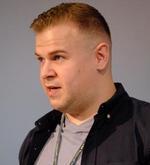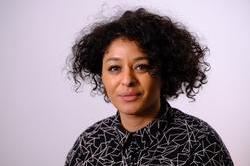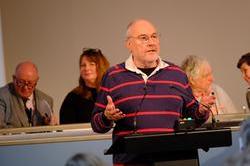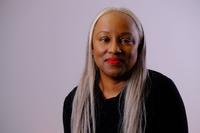DM2023: media freedom
Protection of sources, Freedom of Information and media plurality all featured in the media freedom debate.
Motions paid tribute to NUJ member and ex-MP Chris Mullin for his principled stand in the defence of his sources.
Bob Wade proposing the composite on behalf of Birmingham and Coventry branch said Mullin had faced vilification from the right-wing media. DM instructed NEC to continue to ensure members are reminded of the code of conduct and their duty to uphold it, and to continue to support members who refuse to reveal their sources. The composite was passed.

Stephen Corrigan, West of Ireland branch, proposed a motion opposed to the concentration of media ownership through acquisition of local newspapers in Ireland and highlighted the need for a campaign for stronger powers for the Competition and Consumer Protection Commission which could assess proposed mergers on a range of factors, extending beyond those commercial in nature. He said one company owned 20 media titles. Siobhan Holliman seconding the motion said media plurality is key to ensure a media that is diverse and inclusive. The motion was carried.
Conference instructed the NUJ to strengthen work with unions and civil society groups to raise awareness about the importance of the European Convention on Human Rights and to counter claims that it promotes religious discrimination, unwelcome immigration and the protection of terrorists. DM also instructed the union to work with the International and European Federations of Journalists to protect journalists’ rights under the Human Rights Act and the European Convention.
Cailin Mackenzie, from Continental European Council branch, proposed a motion condemning the "so-called Bill of Rights", noting concern about individuals and groups using freedom of speech and religion to justify their promotion of discrimination and hate speech.
Attacks against the European Convention on Human Rights, the European Court of Human Rights and the British judiciary were also noted in the motion carried by conference. Tony Sheldon, Continental European Council branch, urged members to oppose the bill as he shared that journalists would have fewer rights to protect sources.

Motion 77 tabled by Glasgow branch about breaches of Freedom of Information laws noted obstacles by the Scottish government and public bodies in providing responses made. Ann Coltart proposing the motion said the rights given to journalists and the general public were under threat and needed protection. Layla Roxanne-Hill (pictured) on behalf of the National Executive Council said this was not solely a Scottish issue, and had a far wider impact.
The motion was carried and instructed the NEC to oversee a campaign to defend the right to Freedom of Information in Scotland and across the UK.
Conference heard there has been an increasing reliance of some media companies prioritising page views over the role of journalism as a public good. Motion 78 from the Welsh Executive Council shared views on the implications of such approaches including the skewing of news values and replacement of local news with generic content. Martin Shipton, Welsh Executive Council, said reporters were being threatened with disciplinary action if they failed to meet high page targets set.
David Nicholson said there had been a creation of news deserts in part of Wales. Public interest journalism in Wales should be countered as a public service he said. NEC was instructed to campaign on the issue ensuring points were raised in responses to statutory consultations.
Composite F covering motions 79 and 80 tabled by the Ethics council and amended by both the council and Edinburgh Freelance branch was carried. The motion stated the use of Strategic Lawsuits Against Public Participation (SLAPPs) were being used as a way to stifle legitimate reporting and debate, noting London courts in particular, had become a target for the abusive practices.
Simon Barrow proposing the motion, said further pressure was needed to introduce reforms to protect free speech and the right to report as soon as possible.

Chris Frost, stated “we need to be able to hold people to account and we need to do it properly”. Jen Stout informed delegates of the need to support the composite to prevent Scotland becoming a stronghold for SLAPPs.
Delegate Meeting instructed the Ethics council to put pressure on the UK government to introduce reforms as quickly as possible to protect free speech and the right to report. The amendment by Edinburgh Freelance branch instructed the union to support efforts to persuade the Scottish government to reverse its unwillingness to legislate on SLAPPs and take action to defend freedom of speech.
Motion 82 from London Freelance instructed the union to argue for changes to the libel laws encouraging settlement of disputes without recourse to libel lawyers and courts. The motion fell.
Conference carried a motion instructing the union to work with organisations opposing concentration of the media, supporting press diversification and encouraging establishment of media titles that back workers’ fights for improved pay and conditions.
Motion 84 tabled by the Ethics Council raised concerns about restrictions on the use of video clips from Queen Elizabeth II’s funeral, including reports that all recordings would be limited to one hour of archive material through pre-approval via an opaque process.
Michael Foley speaking on behalf of the ethics council and proposing the motion said the motion was about “power, control and the integrity of editorial content.”

Deborah Hobson on behalf of the NEC said key issues at the heart of the motion was “an exposure of yet another attempt by the establishment the state and a rich, privileged elite to gag and constrain the freedoms of broadcast media.”
The motion was carried by conference and instructed the union to seek assurances from public broadcasters that requests from the Royal family would be adhered to if there was sufficient evidence clips had breached ethical practice in BBC or Ofcom editorial guidelines.
